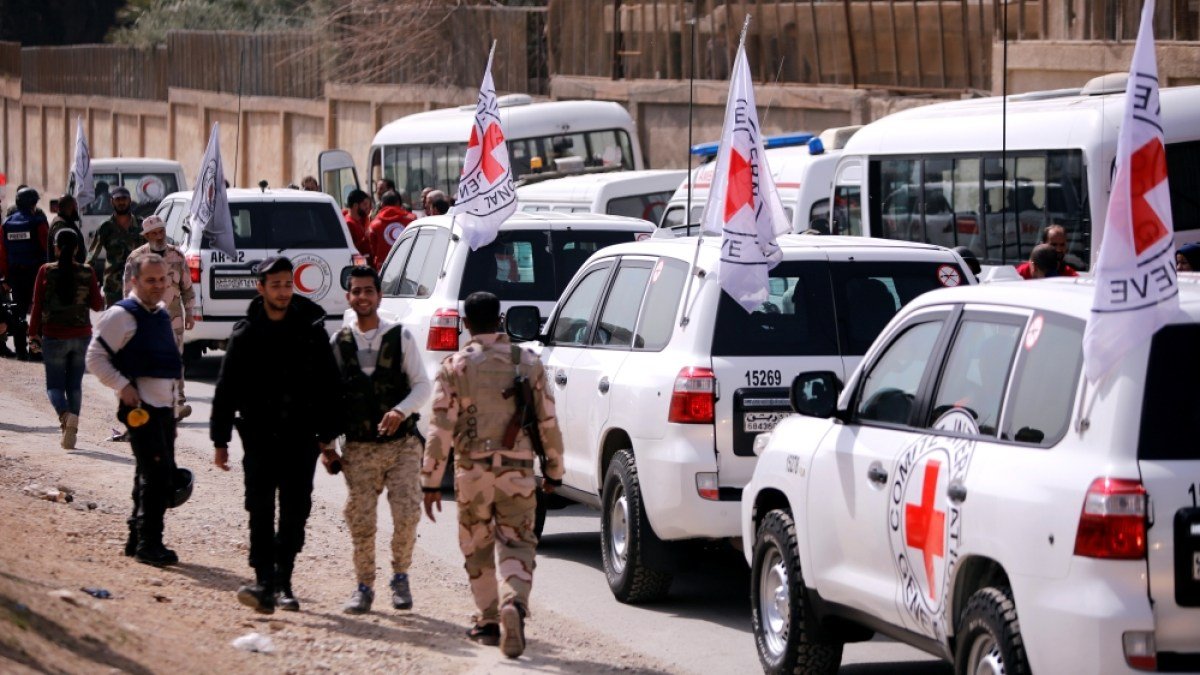
International humanitarian law violations should not be normalised, ICRC warns, noting 120 global conflicts as it marks Geneva Conventions’ 75th anniversary.
The International Committee of the Red Cross (ICRC) has called on the world to respect the Geneva Conventions as the international treaties setting out the rules of war mark their 75th anniversary.
The rule book for the conduct of war is under strain and often disregarded, ICRC President Mirjana Spoljaric said on Monday. Conduct in conflicts such as in Gaza, Ukraine, Syria and Myanmar illustrate that the conventions are being largely ignored and a new commitment to international humanitarian law is needed, advocates say.
The Geneva Conventions, which mark out rules on the protection of civilians, detainees and wounded soldiers, were adopted by most of the world after they were finalised in 1949.
“The world must recommit to this robust protective framework for armed conflict, one that follows the premise of protecting life instead of justifying death,” Spoljaric told reporters at ICRC headquarters in Geneva.
Today we mark the 75th anniversary of the Geneva Conventions. Since Aug. 12th, 1949, they have safeguarded human dignity in the darkest times. 📜
States and non-state armed groups must ensure these rules continue to save lives. pic.twitter.com/DRnukK09IX
— ICRC (@ICRC) August 12, 2024
“Today we mark the 75th anniversary of the Geneva Conventions,” the ICRC wrote on X. “They have safeguarded human dignity in the darkest times. States and non-state armed groups must ensure these rules continue to save lives.”
The conventions ban torture and sexual violence, require humane treatment of detainees and mandate searches for missing people.
They “reflect a global consensus that all wars have limits”, Spoljaric said. “The dehumanisation of both enemy fighters and civilian populations is a path to ruin and disaster.”
The Red Cross said the rule book is needed now more than ever. More than 120 active conflicts persist around the world, it pointed out, a six-fold increase from the half-century anniversary of the conventions in 1999.
Modern armed conflicts have become more dangerous since the 20th century due to new technologies, the urbanisation of warfare and “the deliberate dehumanisation of the enemy through labels such as ‘terrorist’”, it went on to say.
The Red Cross stated that violations – including firing on hospitals, schools and ambulances and the killing of aid workers and civilians – should not become the norm.
When international humanitarian law “violations are committed with impunity, this fuels further cycles of violence often resulting in protracted armed conflicts that span decades”, the organisation said.
Actors in many conflicts today are accused of violating the conventions, from Gaza to Ukraine.
The United Nations special rapporteur on the occupied Palestinian territory has accused Israel of violating three of the five acts listed under the UN Genocide Conventions during its war in Gaza.
South Africa has also taken Israel to the International Court of Justice, accusing it of committing genocide against Palestinians in Gaza – with 12 other countries backing the case.
Russia’s actions in Ukraine, meanwhile, should be investigated as war crimes, organisations like Human Rights Watch have said.






